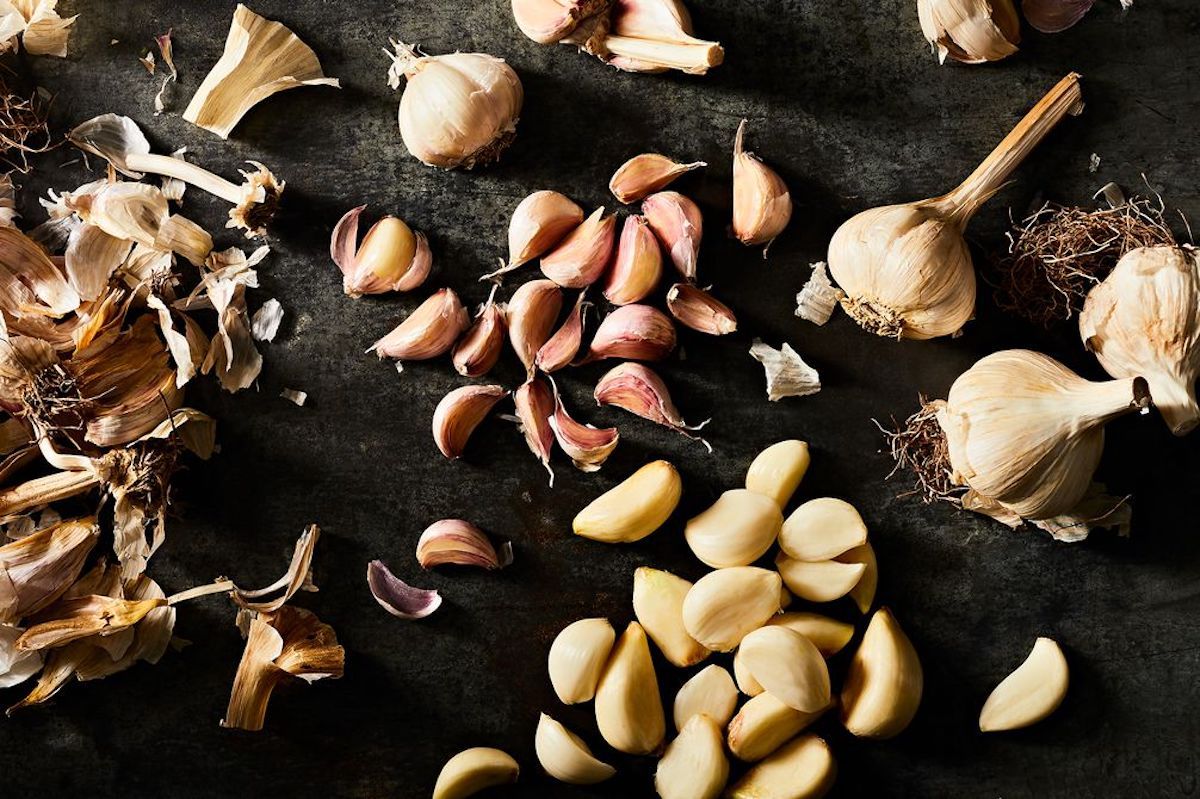I come from a family of garlic lovers: The kind of family that fought over the cloves of garlic tucked into sautéed greens at an Italian restaurant. The kind that gifted things like a "Garlic Lovers' Cookbook," complete with a wacky, but very real, recipe for garlic ice cream (full disclosure, I have never attempted it).
Sautéeing garlic with another allium — shallots, onions, leeks, or a combination therein — builds a strong flavor foundation for any dish. It will also make your kitchen smell incredible almost instantaneously. (I've been dreaming of a "sautéed onion" Yankee Candle for years.) Suffice it to say that I've minced a lot of garlic in my day. But it wasn't until I started professionally recipe testing that I learned the "why" and not just the "how" behind mincing garlic.
Why mince garlic?
Let's start with the former: Why would you mince garlic instead of leaving the clove whole, smashing or slicing it, or using a tool that does the work for you, like a garlic press? When it comes to choosing how you chop, first think about how much you want the garlic to flavor your dish and how your garlic will cook. Is it a flash-sauté or a long-simmered stew? Then, look to science: Garlic contains a compound called allicin that gives the allium its pungent taste, and more noticeably, its smell. (Pro tip: Rub your hands with stainless steel to neutralize the lingering aroma after cooking.) Contributor Maki Yazawa offers this tip: The finer you chop your garlic, the more allicin will be released, and the more pungent the flavor. "If you're looking for a mellower hint of garlic (say, to season a sauce), roughly chop your cloves into large pieces, which will just lightly infuse the dish."
Equipment is also important
When chopping any allium, start with a sharp knife. Similar to the eye-burning sulfuric chemicals that onions release when cut, chopped garlic will start to release allicin. A dull knife will mash the garlic rather than neatly slice through it, leaving most of the flavor on your cutting board. A sharp knife helps the garlic retain as much allicin and flavor as possible.
Can't I just let the jarred stuff (or a press) do the work for me?
When it comes to pre-minced, jarred garlic, does it measure up to the fresh version? And how much actually counts as one clove? You're not the only one wondering. According to writer Sarah Jampel, this question has been posed by millions, over and over again. As Jampel recounts, the amount of minced garlic from "one clove" can range from 1/4 teaspoon all the way to a full tablespoon — not wildly helpful for following a recipe. There is also a fairly heated debate on the merits and pitfalls of using the stuff period, calling to mind one of my favorite Anthony Bourdain quotes: "Misuse of garlic is a crime." (Bourdain considered jarred garlic to fall into this category.) Still, Jampel comes to the conclusion that minced garlic, and how you use it, is a personal journey. Personally, I avoid the jar, mostly because I want my garlic flavor as sharp as possible.
While garlic presses aim to take the work out of mincing fresh garlic, I find they always do more of a mash than a mince, leaving the shell of the clove and a lot of liquid stuck in the press. Plus, time saved on mincing will be spent cleaning out those tiny holes. No one — I repeat, no one — wants to clean a dirty garlic press, especially when the garlic has dried to the tool.
If I'm tight on time, as opposed to reaching for a jar or press, I'll use a microplane to grate garlic or just give the cloves one big smash with the flat side of my knife.
How to mince garlic
Onto the main event. First, use your hands to remove your desired number of cloves from the head of garlic. If you have trouble releasing cloves, place the whole head, root side-down, on a cutting board, and push down on top of the head with the heel of your hand to loosen the cloves. To remove the papery skin on individual cloves, I like to place a clove under the flat side of my knife, (or the flat bottom of a cup or bowl) and apply gentle pressure with the heel of my hand until the peel splits. The goal is to apply enough force to separate the skin from the clove without smashing it too much. Alternatively, slice off the small, hard root end of the clove and then peel it like an onion, but that can be painstaking. Discard the skins or set them aside for compost. Cut off the root end if you haven't already.
Next, with your dominant hand gripping the knife and the other hand flat on top near the blade's tip to keep the cuts precise and the knife stable, begin to chop one or several garlic cloves using a rocking motion. Continue to rock the knife back and forth while moving left and right in a fanning motion over your garlic pile, until minced to desired fineness. If you really want to practice those cheffy knife skills, you can also slice each clove horizontally, then vertically, then side to side, à la this shallot-mincing tutorial. Examine the pile of minced garlic for any outstanding larger pieces and rock the knife over them a few more times as needed — as with any vegetable, the more evenly you chop, the more evenly they will cook.
Now that you have minced garlic, it's time to cook!
This is one of the weeknight recipes I (and many others, based on the reviews) go back to time after time. I highly recommend serving alongside rice or a big hunk of crusty bread, because you'll definitely want to sop up every last drop of the garlicky mustard-cream sauce.
White Pasta With Garlic Parmigiano Breadcrumbs
For the record, I would top pretty much anything with this toasty garlic-parm breadcrumb mixture. This is a perfect example of a dish that comes together with ingredients you probably already have on hand and ends up tasting like it came from a high-end restaurant. Endlessly flexible (I like to wilt in bitter greens like arugula or kale) it's sure to please even the pickiest eaters.
The title says it all. There's something about pancetta that makes a dish feel instantly sophisticated and impressive, not to mention wildly flavorful. I've also made this with green beans and par-cooked broccoli to much success — don't skip the orange zest!




Shares